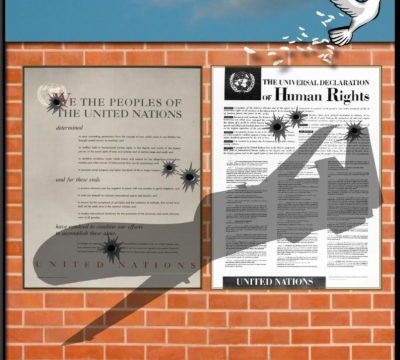Giuseppe Lipari
Organising Bureau of European School Student Unions – OBESSU
The current CoVID-19 pandemic, enveloping the planet since January, was an unexpected scenario that is radically changing our lifestyle and politics. With an unprecedented economic crisis, the dangers of a social collapse are getting clear in different parts of the world; while the post Washington Consensus policies show the weakness in granting economic growth, social security, and Hope for huge percentages of the population even in the “most developed” countries.
The Governments, around the globe, somehow reaffi rmed the leading role of politics in public matters. The need for an answer was concretely perceived, even though with slight timing differences between different states, with an attempt to centralize the pandemic management at the national level even in federal states. The extreme urgency of the situation seemed to require a strengthened action by the Executive power, cutting the parliamentary debate and
the consultations with social stakeholders. While the object of this policy was the limitation of freedoms and rights, with an increased role of police control, it can be easily understood how relevant the risk was for authoritarian escalation, with momentarily suspended checks and balances.
The temporary reduction of intermediation, key element in representative democracy, polarised even more the political debate while the space for civic participation and engagement was being substantially shrunk. In this complicated situation, with limited exceptions, the student representative organisations had to recognise a limited power of infl uence on processes that were radically changing the life of learners at all levels. Young people were accused to be main diffusers of the virus, making the political arena even more hostile to our claims. Schools and Universities got immediately closed without clear plans for the future, especially in the most affected countries. All the human aspects related to the main occupation of the youngest were just underrated, also ignoring the differences of means for learners, producing weak policies and making education even more exclusive and discriminatory.
We are still dealing with these policies from the last months. A renewed role of learners and civil society representatives is needed to shape the new policies in the after-emergency situation, while politics comes back to more balanced and inclusive procedures. Unfortunately what I just said is not even in the plans for some Governments and the risk of an authoritarian evolution of centralized politics is still concrete. An example could be Hungary, where after the CoVID-19 pandemic the Government got special powers from the Parliament, without time limit, and used its renewed strength to reduce rights of transgender people by law. After the peak of the pandemic is over in Central Europe, now the same government is planning a heavy militarisation of schools, sending the police to 500 schools, with the right to arrest 12 year old children, in the poorest areas of the country.
From our perspective, the respect of Human Rights is a priority to keep democracy strong and accountable. Arbitrary politics are a concrete danger for pluralism and for both civil and social rights. Learners have the right to express themselves and deserve an active role in decision making. Active participation is also a key point in the creation of concrete support measures, especially in the countries with low welfare, to avoid or reduce the terrible social costs of this crisis. Repression can’t be considered an answer, and what’s happening in the U.S. is a concrete example of that. The exclusion and segregation affecting the black communities has led people to an incredible response with demonstrations everywhere in the country. Students are an active part of these movements, because neither educational institutions nor the youngest are free from racist discriminations.
Inclusive politics and policies could be a solution, to resist the crisis and to create a better society after the crisis, but a clear political will of engaged is needed, on both sides.
Learners are ready for that.










